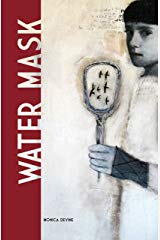The Gifts My Father Has Given

In my hands I held a hardback copy of Jules Verne’s Classic Science Fiction , torn airmail packaging scattered at my feet. The inscription: “To Matt, with love from Grandpa Loren, San Francisco.” Why is my 75-year-old father sending my 9-year-old son a 511-page book? The inappropriateness of the gift irritated me—a gift hurriedly bought with too little care given. But perhaps it was unfair of me to expect my father to know what a boy of nine would like. Then I remembered that spring, when we had visited San Francisco. Dad had sprinted after a cable car, grabbing Matt’s hand and leaping aboard. Later he plucked a nickel off the street. “Matt, look! When you put a coin on the track—the cable car almost cuts it in half!” I can still picture them standing there, heads bent in mutual admiration. Less irritated, I stared out the window at our dog Hondo, sleeping on the deck. He had been with us since he was eight weeks old. Gray hairs covered the muzzle of glossy black head, and the...






